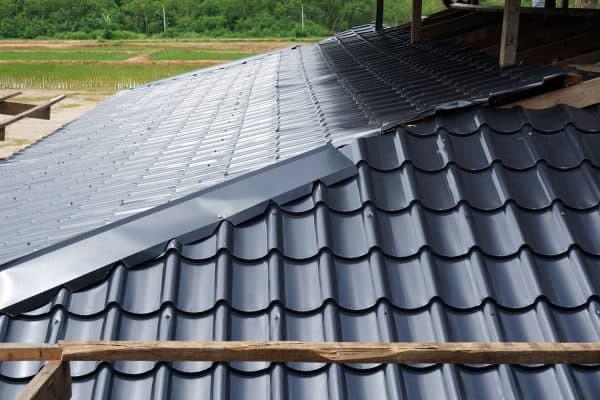Whether you live in the mountains of Colorado or West Texas's flatlands, every driveway has a slope to it. For safety reasons, driveways should only be so steep. After all, if there is too steep of an angle, you run the risk of your car tipping over and rolling down the hill, which could be dangerous. Understanding the laws for how steep a driveway can be is imperative if you are considering building a driveway. We have researched these requirements to help keep you safe.
Your driveway should only rise 25 feet in elevation per 100 feet of road. Anything over this percentage can lead to a severe risk of harm or death, so we do not recommend anything over 25 feet per 100 feet.
What is the maximum slope of a driveway? Can you level a steep driveway? What is the best surface for a steep driveway? How do you prevent erosion on a steep driveway? We have done the research and compiled the information into this article, so keep reading below as we answer these questions and go further in-depth!
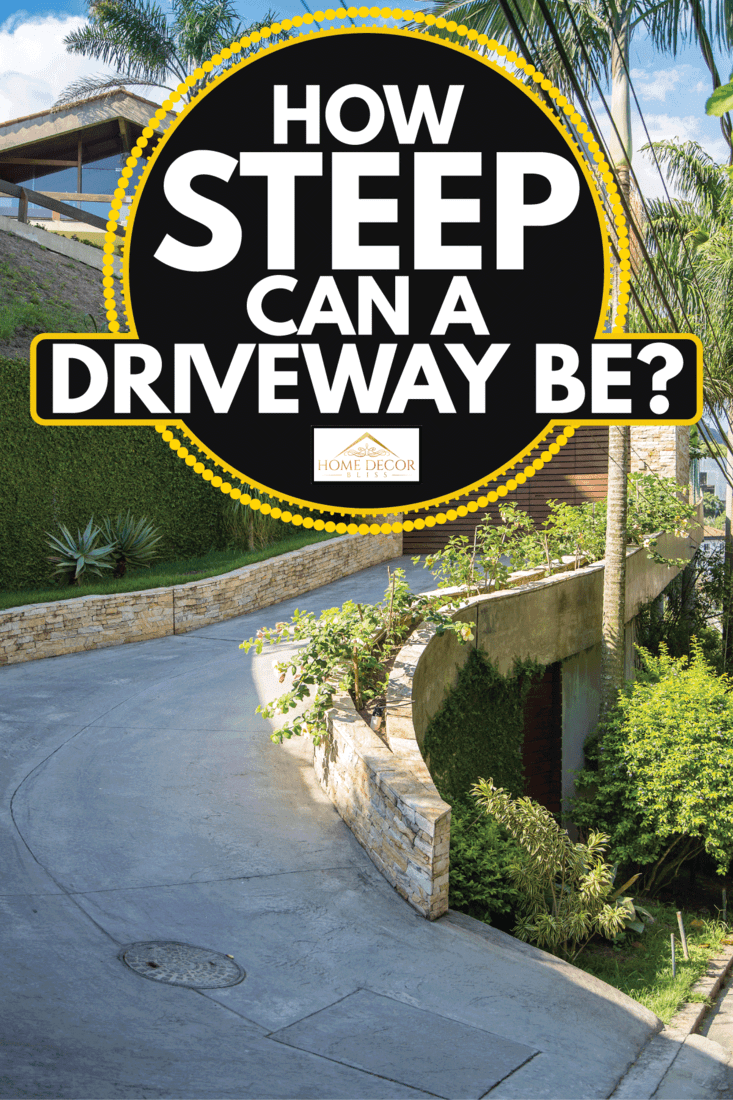
What Is The Maximum Slope of a Driveway?
The maximum slope you can have in a driveway is 25%. This translates to 25 feet per 100 feet, which is what we mentioned above. This maximum may differ depending on your local regulations and type of driveway. So, before you start your project, check with local authorities on requirements for driveways.
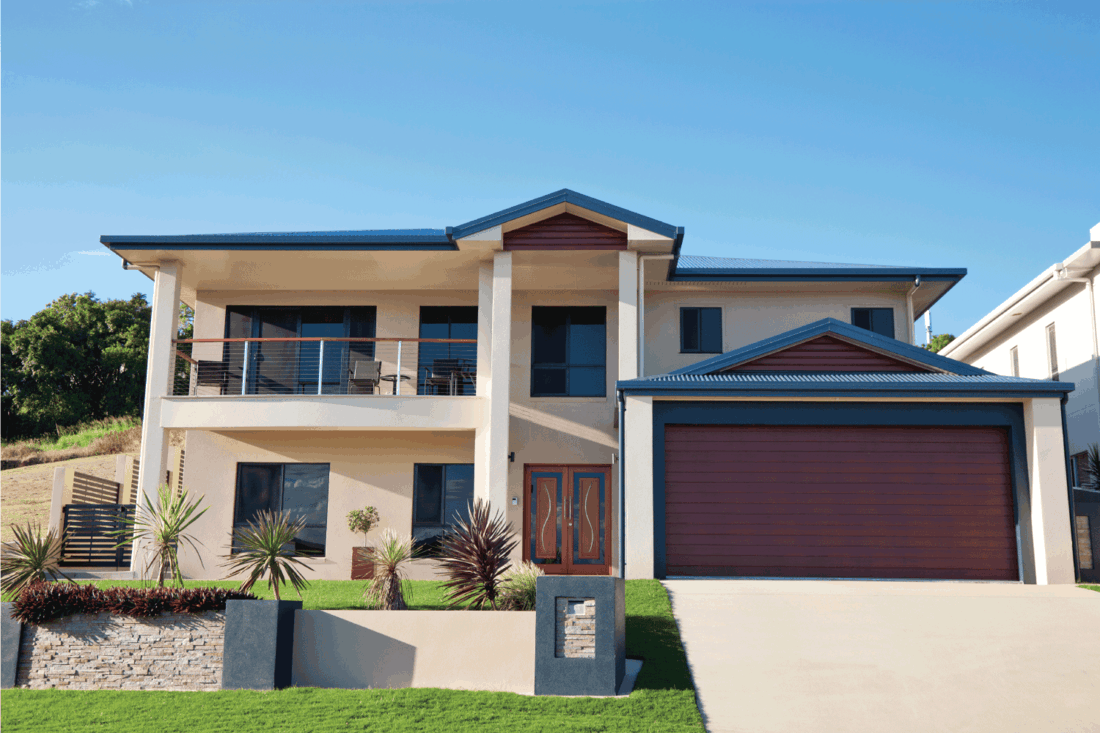
We may include affiliate links and curated AI content to highlight top design styles.
What Is A Transition Zone?
Even if your driveway is under a 25% slope, you may still want to consider having transition zones. Just because your slope is under what is recommended does not mean there is still not a chance of flipping over or sliding. A transition zone helps lower the slope or curve in a specific area. These can look different, but they serve the same purpose. They make it easier for vehicles to get up and down a relatively steep driveway. If you are looking into what your driveway's maximum slope can be, transition slopes are also something you may want to consider.
Can You Level A Steep Driveway?
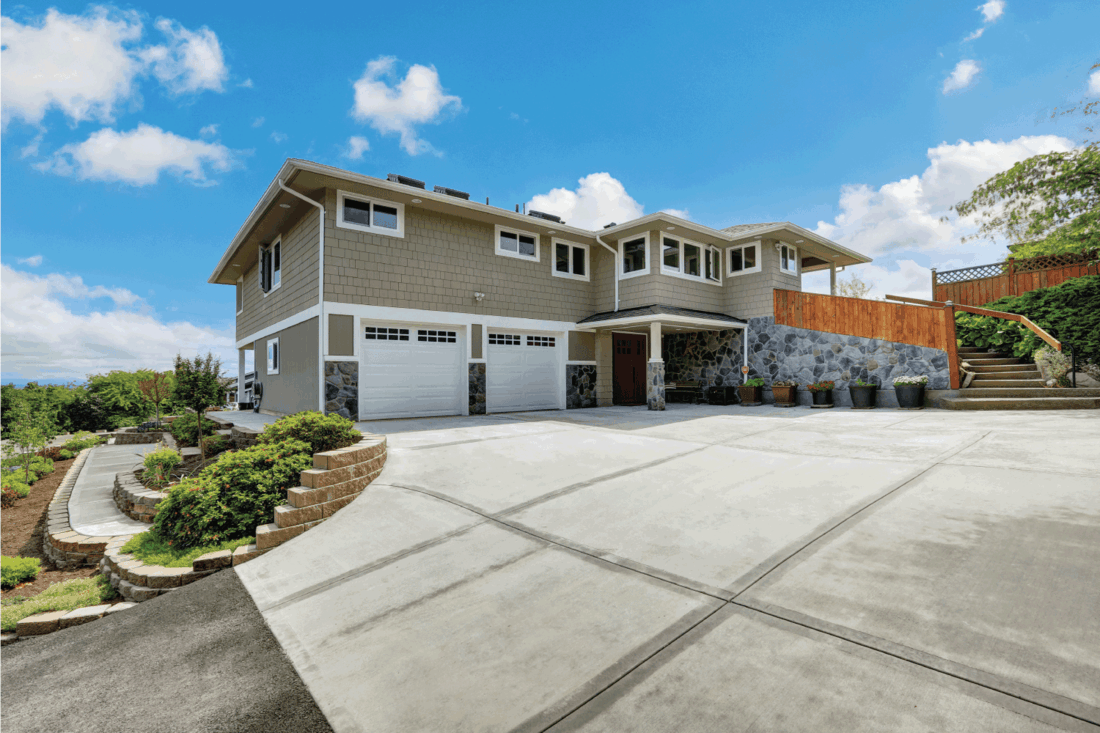
Yes! Have you ever driven up a tall mountain or mountainous area? If you have, chances are you did not drive directly up it, facing the peak the entire time. When ascending or descending an area like this, you will more than likely do so by curving and winding up the hill. This is because there is much less of a slope when you are ascending at a continuous angle. If you are considering leveling your driveway, you may want to consider making your driveway curve in this way.
If you are looking to completely change your terrain's landscape through leveling, you can also do that. Companies can remove your old driveway and add in dirt and filler to reduce the slope of the hill you want a driveway on. Of course, this will be the more costly option, but it can be done.
If you are worried about the gap between the public road and your driveway, you could also consider purchasing a gap ramp. This would reduce the sharp angle the gap has caused, which most likely has resulted in you or others scraping the underside of their vehicle. A gap ramp will fix this issue and allow for a smoother transition from the public road to your driveway.
What Is The Best Surface For A Steep Driveway?
Asphalt is the best surface for a steep driveway. This is because asphalt is different in many ways compared to other common surfaces like concrete. For one, asphalt does a great job at being rough enough to deter water and other hazardous substances, which could cause your driveway to be too slick to drive on. Concrete is so smooth that water ends up making the concrete slippery, making it easier for a vehicle to slip and slide while trying to drive up or down the steep driveway.
Another positive to asphalt is its reliability. Compared to other road surfaces, it is known to outlast many of them. Asphalt is also cheaper and will lower your overall cost of building or redoing your driveway.
It is best to stay away from concrete, if at all possible, for a steep driveway. The only downside to this is concrete will generally look nicer. However, when dealing with a steep driveway, you should go with the safer option than something that could be potentially hazardous. Other road surfaces to avoid would be pavers and gravel. Gravel may be the worst option out of all of them because the rocks are loose and will slide around, almost ensuring you will lose all your traction and control when trying to drive up or down your driveway.
How Do You Prevent Erosion On A Steep Driveway?
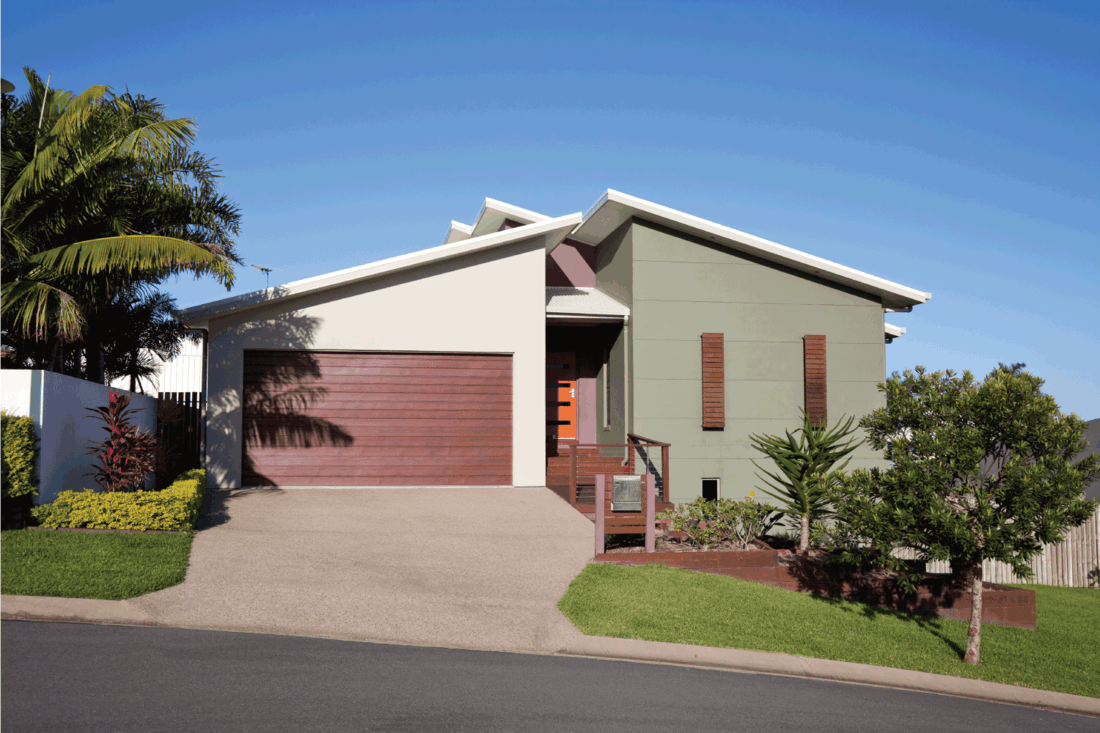
The process for preventing erosion depends on what kind of driveway surface you have. If you already have loose gravel, you can install a permeable paver to help stop erosion from happening. Loose gravel will be the most susceptible to erosion, so if possible, try and go with a surface we recommend asphalt.
Even with asphalt, erosion is still possible. But there are steps you can take to prevent it. First, make sure you have a proper drainage system installed on the sides of your asphalt driveway. This does not have to be expensive; you just need to make sure rainwater has a place to go. A professional will know the best ways to do this. Next, using gravel on the sides of the driveway can also help. For the best results, you want the stones to stay put. Instead of using small, smooth stones that can move with just a little bit of force, try using larger, more jagged rocks. These steps can help prevent erosion.
Summary
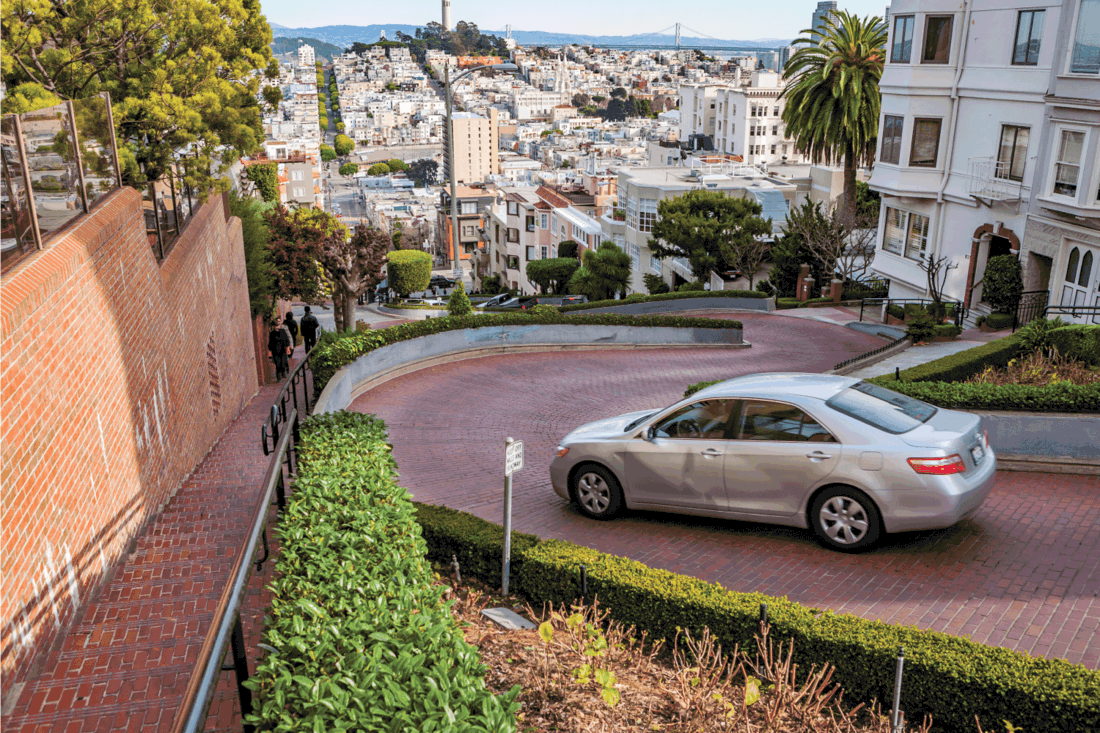
All in all, steep driveways may seem like a pain. Still, if you build them with the right materials and prepare drainage systems around them to avoid erosion and slippery surfaces, then you will be able to use them just like any other driveway. And making sure it is at a reasonable slope will ensure you and your loved ones are safe each time you drive up and down the driveway. If you do your homework on the best slope and take care of your new driveway, your new driveway will take care of you.
Are you interested in learning more about driveways? Check out this article: 21 Paver Driveway Ideas To Consider.
Looking to install a gravel driveway? Here are some beautiful ideas: 21 Gorgeous Gravel Driveway Ideas


![Get Your Roof Ready: How to Apply Aluminum Roof Coating [Step by Step Guide]](https://homedecorbliss.com/wp-content/uploads/2023/08/shutterstock_1624204837-600x400.jpg)
